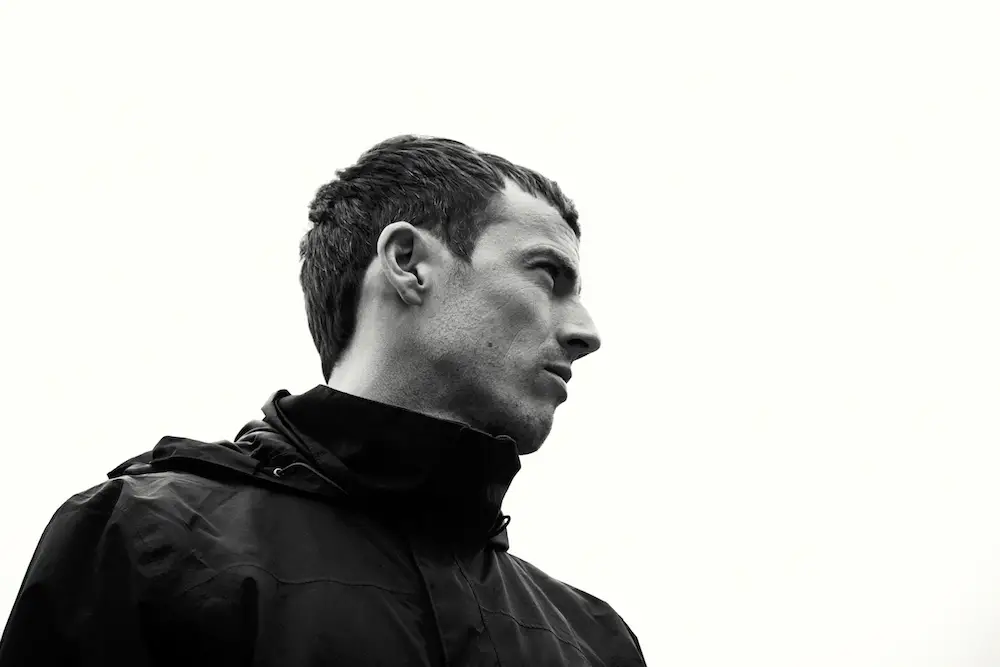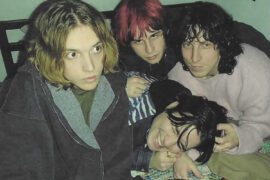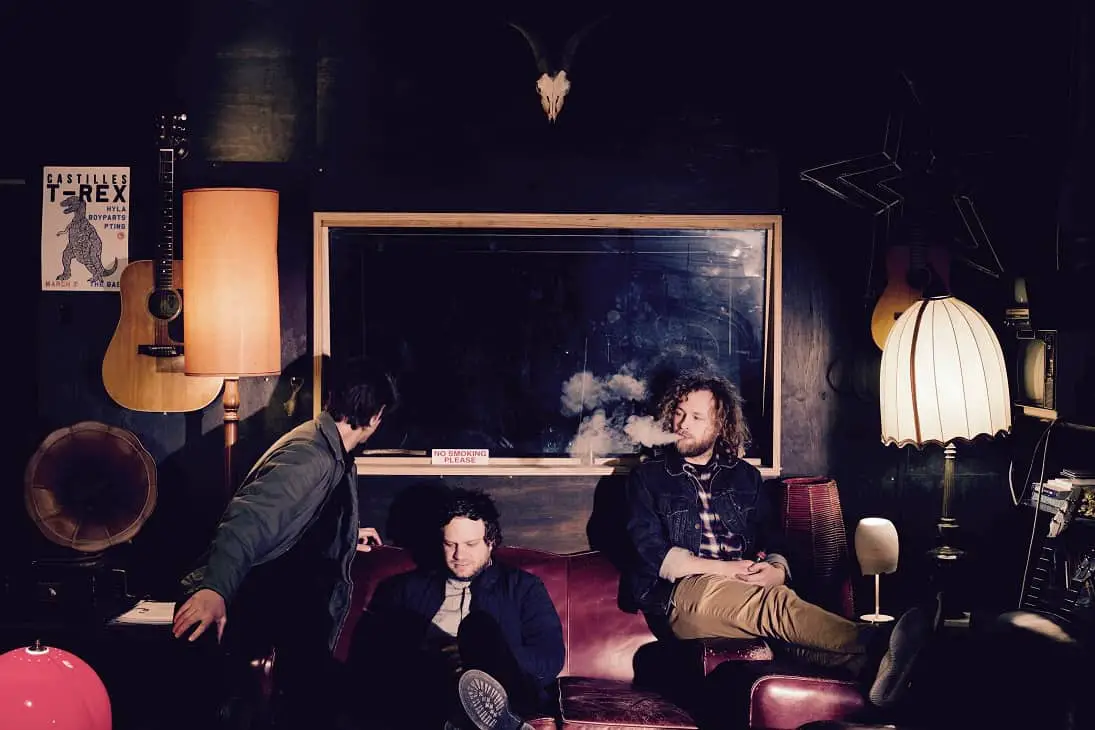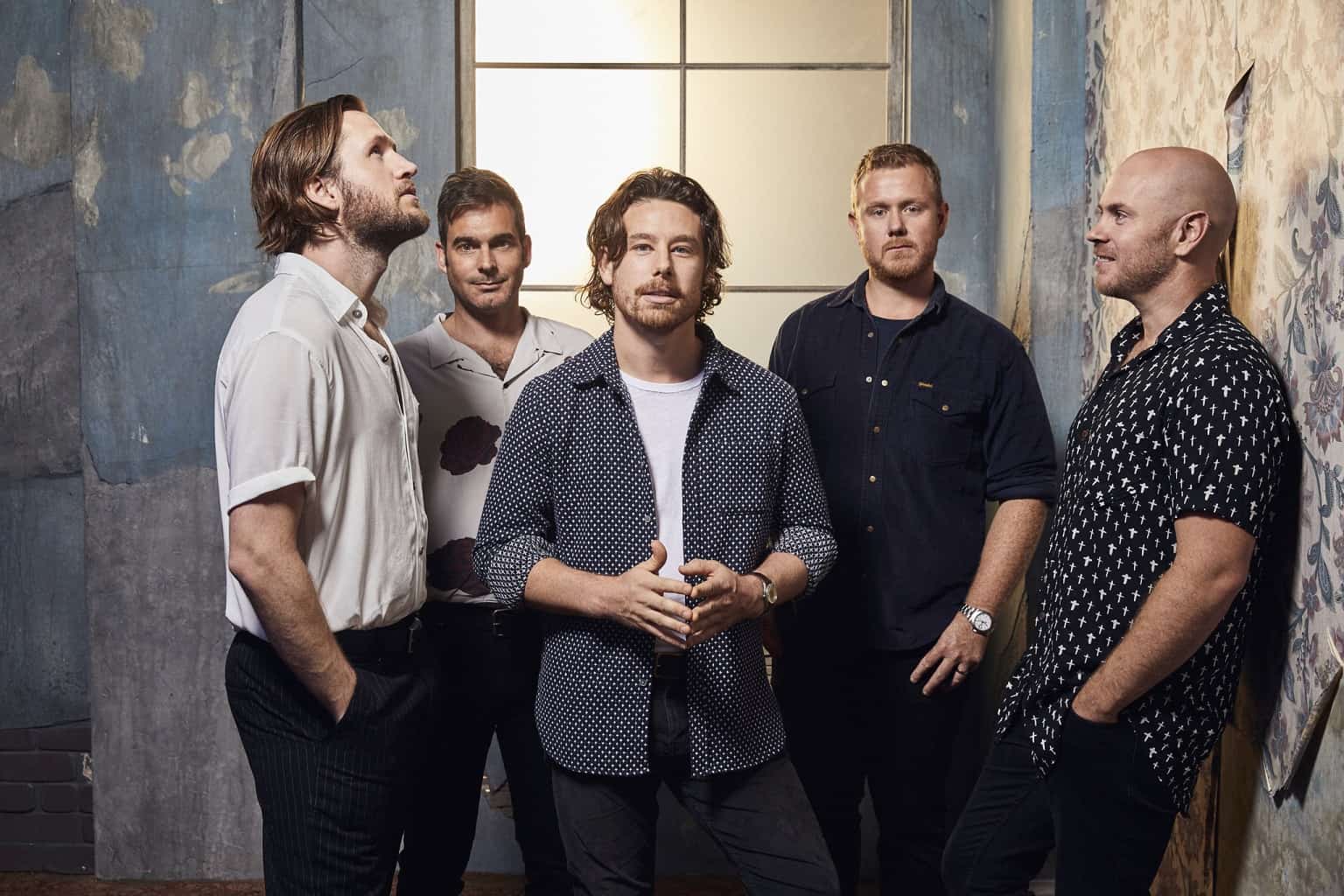Charlie Cunningham discusses his sophomore album Permanent Way, the absurdity of huge streaming numbers, his breakthrough track “Minimum,” and an appreciation for how his music has taken him across the globe.
— —
Charlie Cunningham isn’t your typical streaming success. Although he’s clocked up over 165 million streams just on Spotify, his dedication for extensive touring and a knack for creating a beautifully absorbing narrative within his work truly sets him apart. With their sophomore albums, many artists aim to either directly duplicate their what made their debuts so revered or experiment so wildly that they lose sight of themselves as an artist, in search of an experimental sound that’s disingenuous to their artistry.
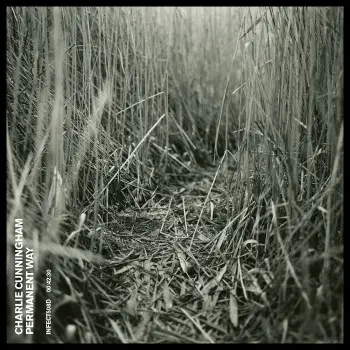
With his sophomore album Permanent Way, the follow-up to his critically acclaimed debut album Lines, Cunningham stunning expands his sonic horizons, with the end result being a delicately beautiful and arrestingly absorbing record. What Cunningham manages to do so perfectly in his lyricism is to embody accessible and relatable sentiments, while making his work feeling deeply intimate and authentic.
While his debut album primarily focused on just Cunningham’s haunting vocal and expressive guitar playing, Permanent Way atmospherically embodies more elegantly enthralling production, which elevates Cunningham’s thought-provoking lyricism. While his music is influenced by the Spanish flamenco tradition, Charlie’s spellbinding sound is distinctly his own. Pinpointing a handful of tracks on the album would be a dreadful disservice to the album’s narrative but also an unconquerable task, with each individual song proving to be exquisitely alluring in its own unique way.
After a summer of festivals, Charlie Cunningham heads back on an extensive tour, starting in the US and then mainland Europe before heading around the UK in November. Cunningham has also just announced a show at EartH in Hackney, London for the 6th of February 2020!
Atwood Magazine spoke with Charlie Cunningham to discuss his sophomore album Permanent Way, the absurdity of huge streaming numbers, his breakthrough track “Minimum” and his appreciation of how his music has taken him across the globe. Dive into our interview and stream Cunningham’s new live video for “Don’t Go Far” exclusively below!
If you explain it too much, you’re really running the risk of affecting someone’s connection to the song.
:: stream/purchase Permanent Way here ::
Stream: “Don’t Go Far” – Charlie Cunningham
A CONVERSATION WITH CHARLIE CUNNINGHAM
Atwood Magazine: Congrats on the new album, it’s incredible! It’s been out for just over 3 weeks; how does it feel to have it out?
Charlie Cunningham: It’s a relief, to be honest. I think that’s the main words for it. I finished it about five months ago and when you put singles, in inverted commas, out and the songs go on Spotify, I always find it really difficult without the context of the record. Now, I know that people can listen to those songs in the context of the record, which is definitely a nice feeling.
What was the thought process putting behind the songs that came out before the album?
Cunningham: To be honest with you, on my part, there wasn’t a great deal of thought; I was cool for any of the songs to come out. If it was down to me, I would have just put them all out in one go. Those were just kind of the ones that kind of seemed to work the best as sort of singles.
Like with “Permanent Way”, the first song that was put out, seemed to serve as quite a good transition from the first record, given the movement of that song being something I did a little bit a couple of times on the first record. That song also had a bit more progression within it, in terms of the other instrumentation, so it just felt like a good kind of stepping stone.
But, yeah, with the other ones there honestly wasn’t as much thought; other people were keen to go with them, so I was like, you know, crack on. (laughs)
The album starts with the title track, where with your last album the title track was the fourth song in the record. What was it about the song or the narrative of “Permanent Way” that made you put it first?
Cunningham: To be honest with you, I decided on the track ordering first before I choose the album’s title. I put the order of the songs in a way that seemed to work the best in creating the journey of the record. After that, I thought about the album title a little, weighing up the different options, but I landed on that one because it had just the right amount of ambiguity to it and also kind of talked about the transient nature of time and things being subject to change. Permanent Way just seemed to be the title that I just kept coming back to so that was really how it happened.
Speaking of this album compared to the first one, how was the creative process for Permanent Way different to Lines?
Cunningham: With the new one, all the songs started in the same way as the last one, just on the guitar, but then it was seeing what kind of atmosphere and space or feelings these songs conjured up and then going about the instrumentation based on that.
I worked with a great guy called Sam Scott and this record just took longer, there was a lot more thought going into it. Not that there wasn’t thought in the first one but the first one was really just about the song in a simple form. It was a bit more of a process this time but it wasn’t too drastically different but there were definitely more variables.
Did you spend some time in LA to work on the record?
Cunningham: Just a little bit, I was over there for two weeks. Mainly I made it in Catford in South London with Sam but I went over to LA for two weeks to write with a chap called Rodaidh McDonald who’d worked on some really cool, interesting stuff like Savages, King Krule and Sampha.
I heard that he was interested in doing some stuff so I thought I should probably do that. You know, work with a guy like that and we worked on a few songs like “Bite”, “Don’t Go Far” and “Force Of Habit”. I started those ones over there with him but, as I said, we only had two weeks, so we got quite a bit of it down, but they were finished off back in London with Sam.
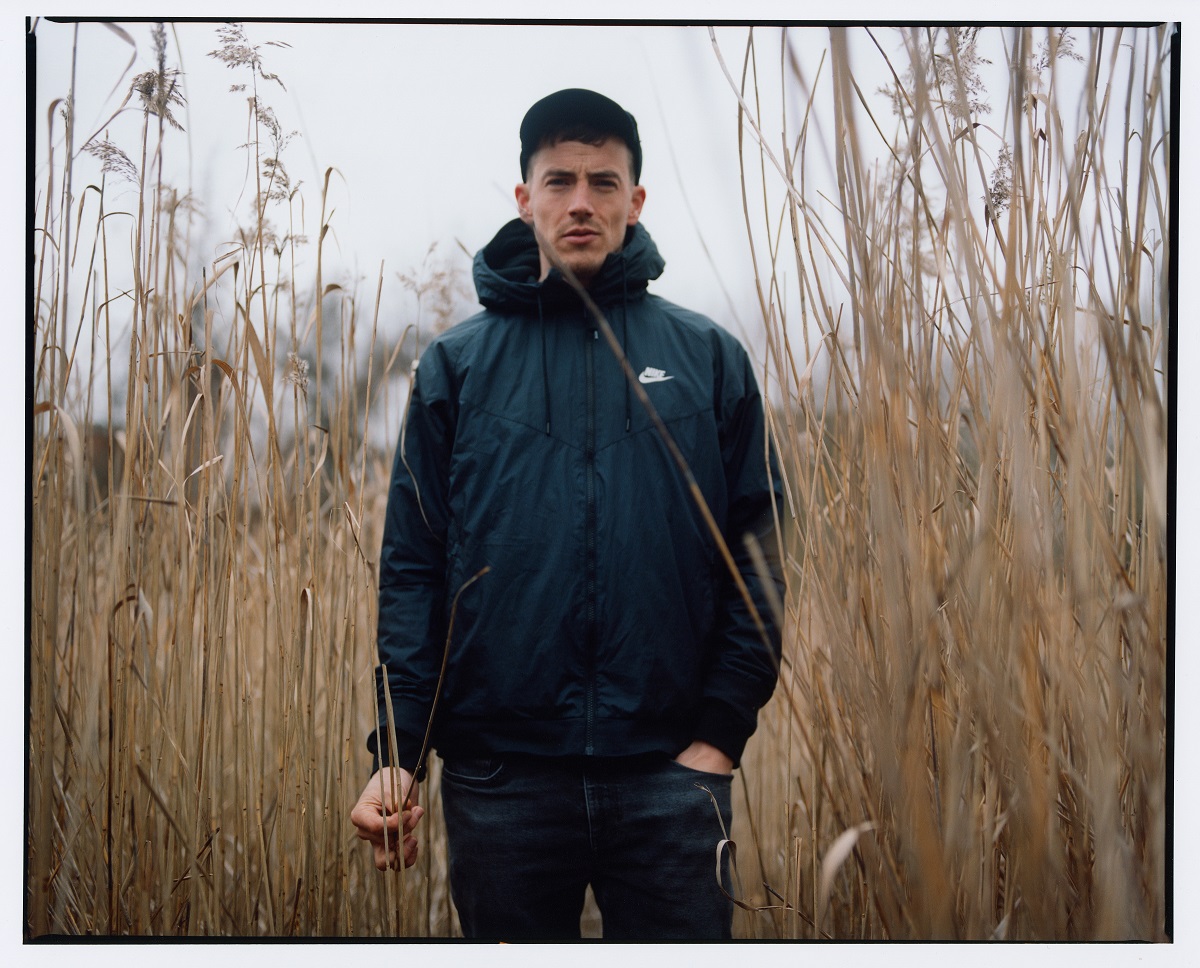
I read in previous interviews that outside of performing you’re quite a private person. With the ever-growing importance of social media and streaming services, is that a struggle or something that you ever think about?
Cunningham: Yes (laughs). I do struggle with it a lot. I mean, I have a nice relationship with the streaming side of things and that’s always been very good for me. People are kind of on the fence about streaming services and Spotify and stuff like that but for someone like me who’s a relatively smaller artist or whatever, who’s never been selling millions of records or anything like that, it’s been really beneficial.
For me, it was a way to get the music out there, to have people discover it and then accordingly come to gigs and then when they’re at the gigs maybe buy a record. I think Spotify I’m kind of cool with it but I think the other social media stuff is a constant battle that I do struggle with.
I see the benefit of it in some ways, but it does go against every instinct I’ve in my body (laughs). I’m still not quite comfortable with it but hopefully, I’ll get there at some point.
It’s quite that level of ambiguity as well with some artists you know so much about them that it sorts of effects listening to their music in a way
Cunningham: Yeah, I agree with you. When I was growing up, with all the bands I liked it was purely just about the music and you’d occasionally just see the odd thing in a magazine or something and that would just be so exciting. It’s a bit of a shame, I think you win something, but you also lose something with that stuff.
Speaking about the connection people have with your music. Are you ever uneasy with explaining the meanings behind songs, the reason they probably liked the song first place is because they’re attributing their own meaning to them?
Cunningham: Exactly. That’s exactly it, to be honest with you. I think you’ve answered it in the question. People often ask, “what’s it about?” or “are these lyrics personal to you?” and I always try to shy away from those sorts of questions for that exact reason. People need to have their connections with the songs, with the song and with the lyrics, and I try to leave it open for them to try and do that. I try not to kind of spoon feed any certain meaning.
Occasionally, there’ll be quite an established narrative on a song but for the most part, I definitely like to leave that ambiguity there so people can interpret things however they want to. I think it’s really important to let people do that because if you explain it too much, you’re really running the risk of affecting someone’s connection to the song.
Yeah definitely. Talking about sort of social media too, I got like an Instagram ad that was a sort of track-by-track explainer and hearing that sort of partly ruined the connection I had with the song.
Cunningham: Yeah, well, every time I release something, I get someone wanting to do a track by track thing and I sit down for a second and just say like “this is so impossible” so I got away with it this time (laughs).
It’s amazing how successful “Minimum” has been; did you know when you were making the track that it had the potential to be something that would resonate with so many people?
Cunningham: Not at all, “Minimum” was a funny one because I’d had the guitar part of it kicking around for a long, long time; that kind of predates all my EP’s and everything. I knew it was something that was good but I toyed around with lots of different ways to structure that song and I never quite there in time for the EP’s or any of that stuff. So it felt really good when I finally got it together.
I never expected anything that I’d do would ever have anything like 70 million streams, those kinds of numbers are almost impossible for anyone to fathom. But I knew that it had taken a long time to get that song together, it was quite a crafted thing, but you have no idea how things are going to do.
Was there any sort of point after where you realised “Minimum” and the record as a whole had become successful and was resonating with lots of people?
Cunningham: It’s so hard to know because on the streaming stuff it’s just numbers really, it doesn’t feel that tangible really. It’s only when maybe you go and do gigs and you start playing that song and you see that people are moving a little bit more or whatever that you think that this has connected with people.
When “Minimum” got a million streams on Spotify, I was like “Jesus, that’s a lot of listens” and then anything after that has become a bit kind of abstract.
Yeah, it’s hard to even fathom like 70 million is such an insane number!
Cunningham: (laughs) Yeah, I know. It’s stupid, I don’t think I got played on the radio once so it’s funny how these things work.
When you envisage people listening to your music or coming to a gig, what do you hope they’ll feel? And is that something that’s ever in the back of your mind during the creative process at all?
Cunningham: When I’m writing them, I don’t think too much about how it’ll be live, and I haven’t started doing that yet. But I think I do just want people to when they leave a gig to have felt just sort of an augmentation of whatever they were feeling before. I just don’t want anything to be taken away once I’ve done the gig so that’s the main thing, just to make sure I represent the music and songs as well and as honestly as I possibly can. Hopefully, when people leave, they might even like the songs even more, you know? If that makes any sense.
Yeah, definitely. For me, hearing something live is definitely more impactful and it forces you to think about the moment in sort of tandem with the song.
Cunningham: Yeah exactly.
Awesome, sweet. You talked about how writing “Minimum” took quite a while. When something emotionally impactful happens, do you feel the need to like immediately to write about it or do you take your time to process the situation?
Cunningham: The words for things don’t come out until much later but the melodies and the kind of progression can sometimes happen pretty quickly. I don’t kind of think I need to get my guitar out right now and channel this stuff. My guitar is always an arms reach away so it does tend to be one of the port of calls whatever I’m doing.
I usually trust the initial emotion of the melody and that normally dictates the lyrics a little bit later down the line. Sometimes though, I’ll get a line or something straight away and I’ll just know that that’s a keeper and I’ll work the song around that.
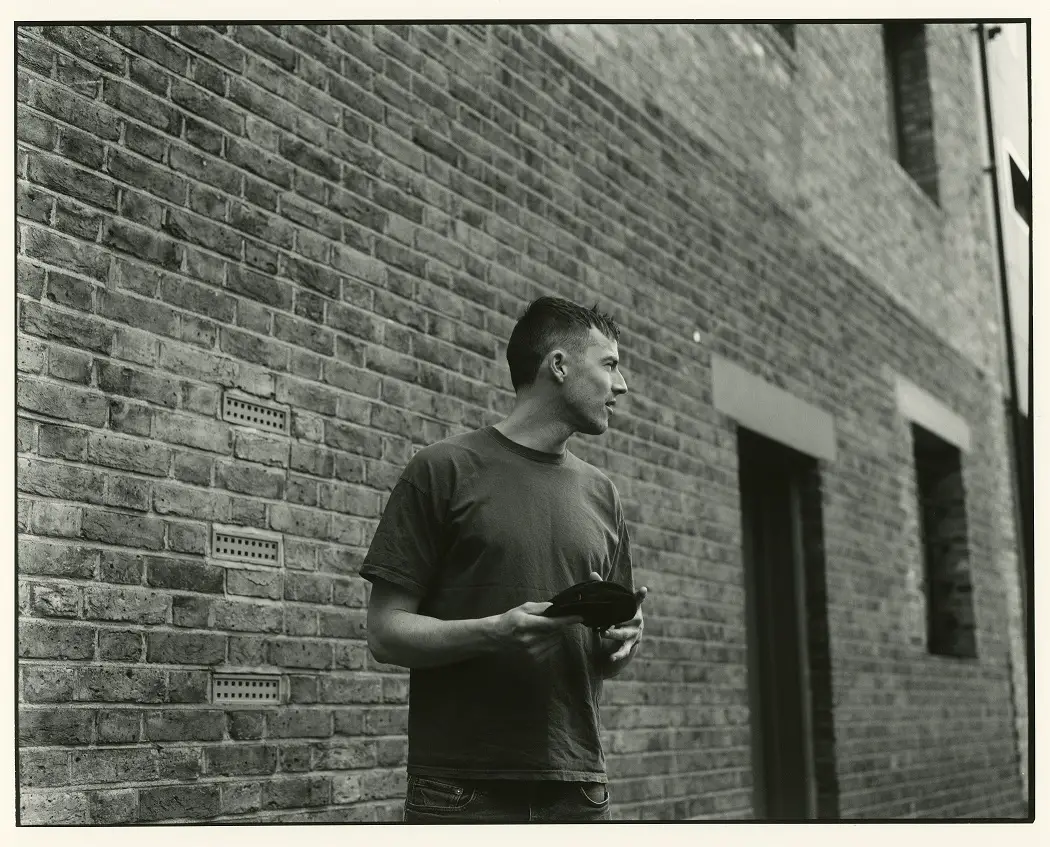
Correct me if I’m wrong but at 28, you went to Seville for two years, after initially only planning to go for 3 months. What was it that led you to move but also at what point did you know it was right to come back?
Cunningham: When I was out there, I was like want to get the point where I’d learn these techniques and I understood this music. I didn’t want to come back with this kind of half-arsed skills that I’d not thoroughly learnt. That kind of music is such a cultural thing and you have to be careful when you’re dealing with things like that, that have got such strong connections with people’s culture.
I think it got the point where I kept on moving the goalposts while I out there, where I was just constantly like I want to get this down but I’m not quite there yet. At the start, I didn’t fully realise it takes a long time to master anything really, so I thought it was probably time to get back now.
Plus, you miss your family and friends, but I still could have stayed there a very long time but that was never the plan. So after two and a half years, I thought it was probably time to go and get cracking with the rest of my life.
Did you move back to Bedfordshire, where you grew up, or London or somewhere else?
Cunningham: When I came back, in London for a bit as my best friend was living in Kentish Town so I stayed with him for a few months. Then I went back to Oxford actually and I got some work there in two bars playing guitar. Once I got settled into doing that, working like three times a week, I had enough to pay my rent and keep my head above water. And then it was at that point that I started writing the songs.
The album artworks for Lines and Permanent Way are both pictures of nature. What was the thought process behind these covers?
Cunningham: I think it’s funny, it’s important for me to breather sometimes and that stuff doesn’t seem to change too much and it’s fairly constant. It can also be very thought-provoking, and I just didn’t want anything to be too distracting.
With my first album Lines, I took that photograph and I just thought this is a really lovely image. It’s spacious and allows you to drift off a little bit; it doesn’t dictate too much to you.
With the Permanent Way cover, that’s actually the Hackney Marshes so that’s actually a little bit of nature in the middle of East London. That was just a photo that Peter Banks, a guy who took a lot of photos for the record, took; it was just one of the many photos he took. It was just such a beautiful, strong image and we just kept coming back to it and kept looking at it so I just thought let’s go with this.
Starting in September, you’re touring in North America followed by Europe and the UK. How does it feel, as an artist, to tour so extensively across the world? To know that your music has resonated enough with people to allow you to do that.
Cunningham: It feels pretty mad. It’s surreal but, then again, I guess a lot of that is down to Spotify and things having that reach. I pinch myself every moment, it’s really abstract until you’re out there and you’re at a place and people are coming in. It’s pretty crazy man.
Is it different touring in America as opposed to being back in England? Like what are the major advantages and disadvantages touring so far away from home?
Cunningham: America is just so big, isn’t it? So the drive between these places is pretty insane, it’s such an unbelievably varied country. Each state might as well be a different country in terms of the people and the terrain. When you’re driving across like Utah or Colorado, it’s pretty unbelievable and otherworldly so I definitely don’t take it for granted.
https://www.youtube.com/watch?v=ClsgkQz9__Y
Finally, as an artist, what’s the most important thing to you and your favourite aspects of being a musician?
Cunningham: The most important thing is the music. That’s an obvious answer, but making sure I don’t leave any stone unturned as to the record or a song and making sure I’ve given it the time and thought that I need is really important. Also, that I’ve accurately represented something and been truthful with it, and if I’ve done that right then everything else that follows is going to be loosely as it’s supposed to be.
I don’t expect anything after I’ve done the stuff, but I expect a lot from myself. Once I’ve finished a record, it’s very much a what will be will be kind of thing, and that’s kind of the way I look at it.
— —
:: stream/purchase Permanent Way here ::
— — — —
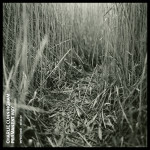
Connect to Charlie Cunningham on
Facebook, Twitter, Instagram
Discover new music on Atwood Magazine
? © Maximilian Koenig

